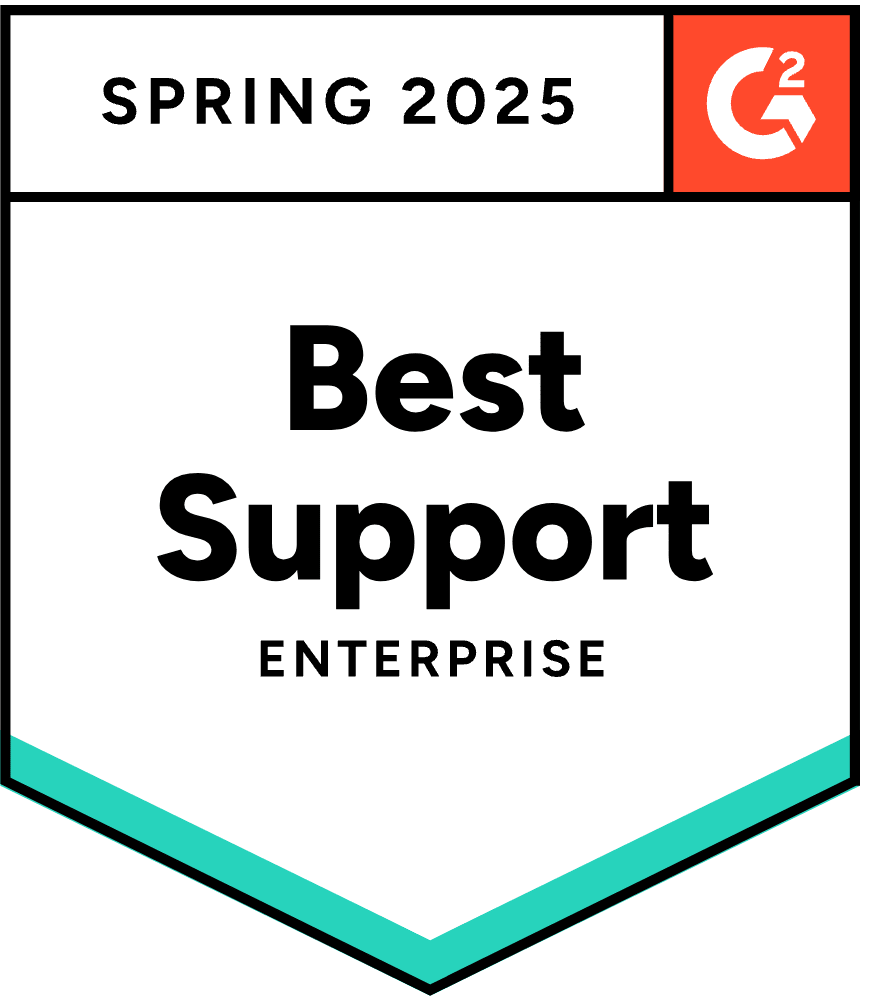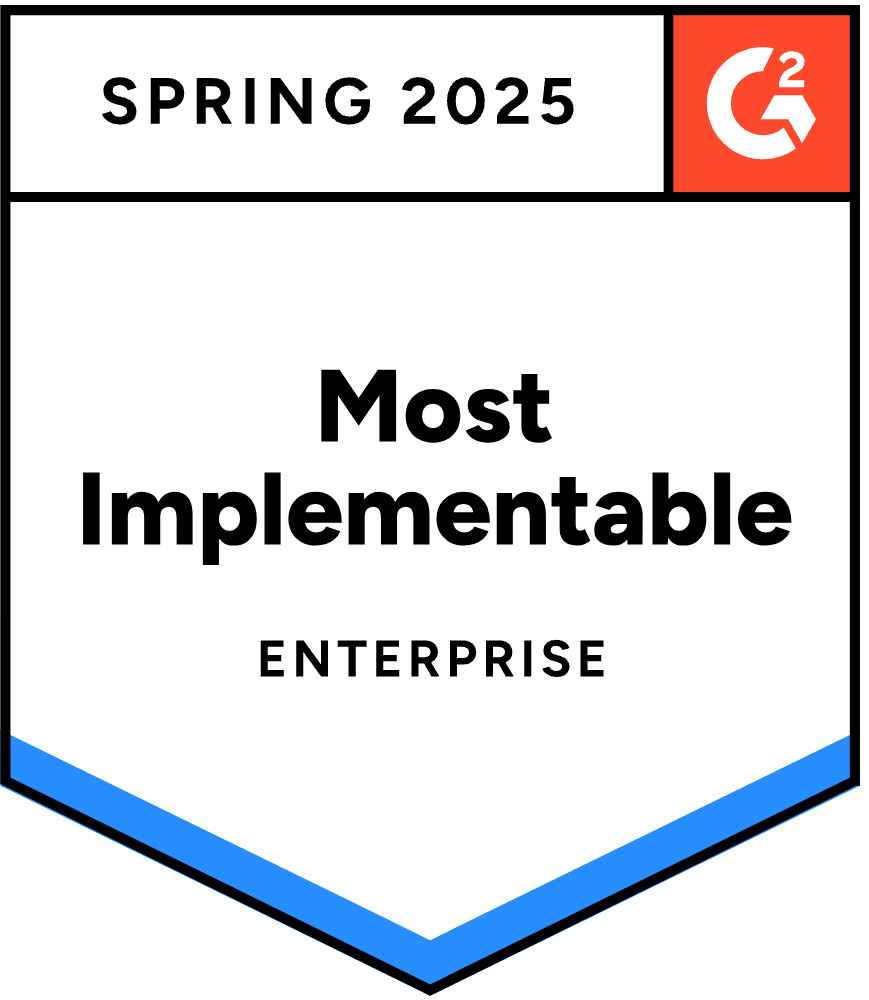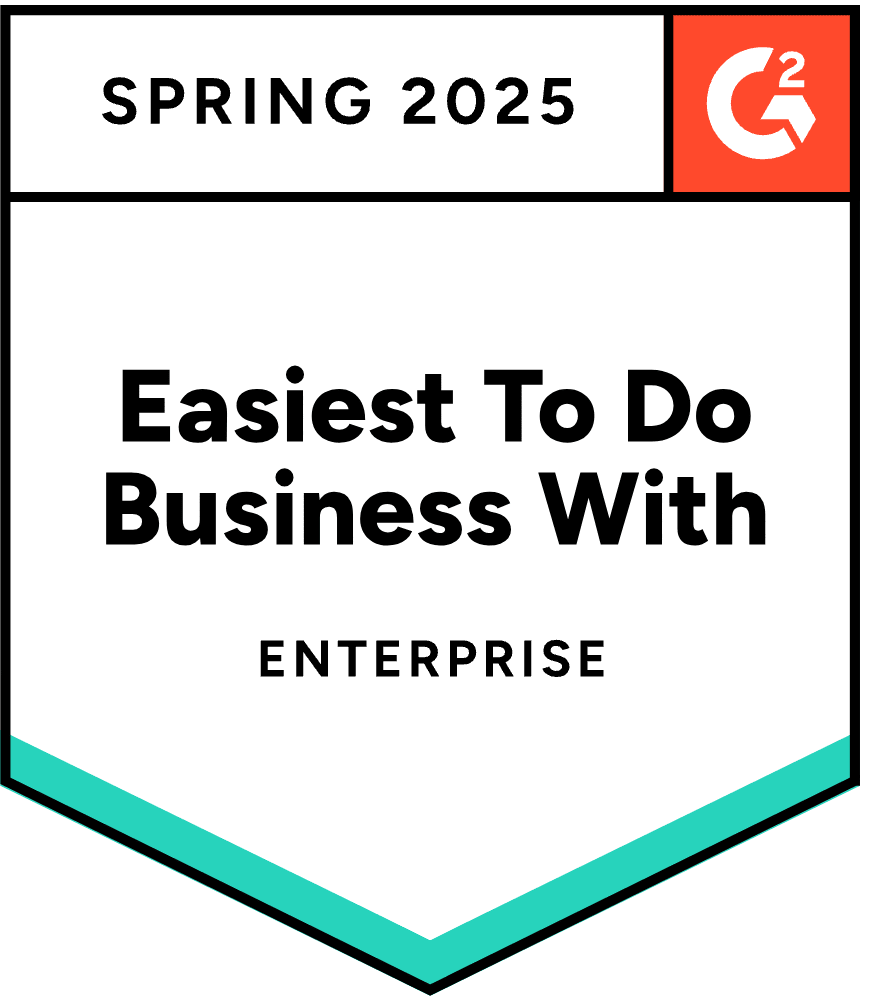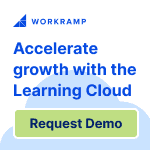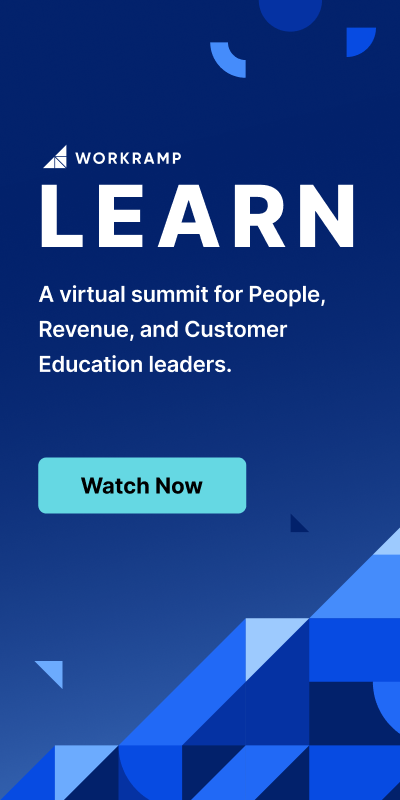Learning Management System Demo: Tips & Crucial Questions
Emily Homrok | WorkRamp Contributor
View bioLearning Tips Straight to Your Inbox
A learning management system (LMS) is a major investment that impacts the productivity and performance of almost every person on your team. It’s an indispensable tool to help businesses design, deploy, and track the outcomes of training programs.
But it’s critical to choose an LMS wisely—and attending a free learning management system demo is one of the best (and most cost-effective) ways to ensure you make the right decision.
Before you head to that upcoming demo on your calendar, discover how to get the most mileage out of your LMS demo with tips on how to prepare, plus important questions to ask all prospective vendors.
In this post:
What is a learning management system (LMS)?
A learning management system, or LMS, is a cloud-based or on-premise platform that lets your business build, customize, and share eLearning content.
An LMS also enables you to track learners’ progress, allowing your organization to ensure that skills are being mastered, learners are engaging with the platform, and training targets are being reached.
There are numerous types of educational content and training programs that you can build, deploy, and track using an LMS like WorkRamp’s Learning Cloud.
Some examples include:
- Compliance training
- Support enablement training
- Customer training
- Diversity training
- Employee upskilling and reskilling
- Management training and leadership development
- New employee onboarding and orientation
- Partner training
- Sales enablement training
What is a learning management system demo?
An LMS demo is a guided, in-depth tour and preview of a learning management system. Many demos are free, and most range somewhere between 30 to 90 minutes.
The demo should be personalized to your company and industry. For example, if you’re in the healthcare industry, the demo might address how an LMS can facilitate HIPAA training, certification, and compliance for your organization.
The person leading the demo should encourage your team to ask questions—and should be prepared with detailed answers.
We’ll share some examples of questions to ask your potential vendors later, but first, let’s go through six tips that will help you prepare for your LMS demo with confidence.
How to prepare for your learning management system demo
The purpose of an LMS demo is to help you determine whether a vendor’s learning management system software is a good fit for your organization’s needs.
Taking certain steps beforehand will help ensure your demo is as productive, frictionless, and informative as possible.
Here are six steps to help your large or small business prepare for an LMS demo.
1. Determine who’s attending the demo
Almost everyone at your company will use your LMS, from salespeople and accountants to your IT and HR leaders—all of whom can offer unique and valuable perspectives. Take advantage of this by bringing multiple team members to your LMS demo.
The question is, who?
First, identify the employees who can provide the greatest insights into potential use cases, opportunities, and challenges that might come from implementing or using the LMS. For example, your IT team might raise essential points about integrations you’ll require or have questions about the practicality of migrating from one system to another.
You’ll also need to generate buy-in and support from your executive leadership, who should be involved in the LMS demo to see its benefits first-hand.
Here are a few examples of attendees to consider including:
- Chief Learning Officer (CLO)
- Content creators
- Department heads
- HR managers
- IT staff members
- LMS administrators
- Trainers and managers
2. Make use cases for your end-user
A use case simply refers to how you intend to use a product or service. An end-user is a learner, like a customer or trainee (as opposed to an administrator updating and maintaining the platform).
Learning management systems have diverse and numerous use cases, from onboarding new employees to creating certification programs for partners and customers.
Other LMS use cases include:
- Compliance training
- Customer training
- Employee upskilling and reskilling
- Franchise training
- Leadership training
- Sales training
Since a learning management system can be used in so many ways, it’s essential to communicate your desired use case to the LMS vendor prior to your demo—the more specific you can be, the better. Think about who your end-users will be (such as customers vs. employees) and what your admins will need the ability to accomplish.
3. Define your training needs
A quality LMS vendor should research your business to provide you with a demo tailored to your organization and industry.
You can make this process easier—and ensure your demo covers the topics you’re most interested in—by communicating transparently with the vendor about the training goals you’d like to accomplish and the pain points you need to address.
Be clear about what you expect—not just from the LMS platform but also from the vendor. You should also discuss how the LMS will support your company’s core values and mission, your timeframe and budget, and your target audience of end-users (for example, training new customers vs. training new salespeople).
4. Know what features you need
The LMS you choose needs to align with your business objectives. Keeping your organization’s end goals in mind, create a comprehensive list of the absolute must-have features you need from your LMS.
Here are 28 examples to help you get started:
- Accessibility
- Asynchronous learning
- Brandable elements
- Collaboration tools
- Content creation and course authoring tools
- Course enrollments
- Customized user roles
- Data reports and analytics
- Direct messaging and group chat
- Drag-and-drop editing tools
- Gamification
- Instructor-led training
- Integrations
- Leaderboards
- Microlearning
- Mobile learning
- Multi-format training content
- Off-the-shelf training content
- Partner certifications
- Personalization options
- Podcasts
- Quizzes and self-assessment tools
- SCORM functionality
- Social learning features
- Third-party content libraries
- Videos
- Webinars
- White-labeling
Discuss your list of essential LMS features with the vendor before your demo. This will help you rule out vendors that cannot meet your requirements while also providing an additional benefit: the vendor may recommend a feature or workflow whose benefits you weren’t previously aware of.
5. Evaluate your current tech stack
Consider the apps and platforms in your tech ecosystem, like using Salesforce to track your team’s sales or BambooHR for payroll.
Now consider what would happen if your new LMS could not connect with them or link accounts together smoothly.
It’s critical to choose an LMS platform that integrates seamlessly with your existing tech stack. Therefore, you should communicate with each prospective vendor about the specific integrations your organization requires.
The Learning Cloud integrates with Zendesk, Salesforce, Workday, Google Analytics, SCORM, Zoom, Slack, and more. Using our intuitive platform, admins can build an all-inclusive learning experience for employees, customers, and partners alike.
6. Create a budget
It’s vital to have a clear budget in mind when shopping for LMS platforms.
Here are a few tips to help you create your budget and maximize cost-efficiency:
- Generate buy-in from executive leadership by using compelling visuals to demonstrate both the immediate and long-term value the LMS will provide
- Evaluate different pricing tiers and subscription models to identify opportunities for savings (such as monthly vs. annual subscriptions)
- Determine whether there are additional fees for specific services (such as access to a live customer care team vs. a self-help portal)
7 questions to ask during the LMS demo
Here are seven points you should discuss with the vendor ahead of or during your LMS demo:
1. What types of learning do you offer?
You can make eLearning more inclusive and engaging by incorporating numerous types of content and appealing to diverse learning styles.
Therefore, you should ask prospective vendors the following questions:
- What types of learning methods and approaches does your platform support? For example, can learning be gamified? Does it include any microlearning or social learning features? Can users learn both synchronously and asynchronously?
- What types of content does the platform support? Can learners access quizzes, videos, articles, interactive features, GIFs, infographics, podcasts, chat features, and other learning resources?
2. What is the process of making and sharing content?
The platform must deliver an exceptional experience—not just for end-users like employees and learners but also the people behind the scenes, like your LMS admins, content creators, and subject matter experts.
In other words, the platform should be easy and frictionless for every team member who designs the content, launches the platform, or maintains the system.
Ask the vendor about the process of creating and distributing content using the platform.
For example:
- Does the platform have a course-authoring feature?
- How is the content updated once published?
- Can learners access previous versions of documents or only the latest versions of eLearning materials?
Asking these questions will help you determine how efficient and practical the LMS will be for your organization.
3. What are your privacy and security standards?
Advanced security and privacy features are non-negotiable in an LMS platform.
When it comes to regulatory compliance and keeping your data safe, make sure you ask the following questions of each potential vendor:
- How are permissions set and updated?
- How does your platform keep group messages and social features secure?
- What sort of data encryption do you use?
- How do you back up data, and how frequently?
4. What analytics and reporting features do you offer?
An LMS isn’t just for creating learning content, providing resources for customers, or providing employee training. It should also allow you to monitor and track learners’ progress and engagement so you can target pain points and demonstrate the system’s ROI.
For these reasons, you should ask potential LMS vendors about the reporting and analytics features they provide.
For example:
- How does your platform track learner progress?
- Are reports generated automatically or manually?
- How can reports be customized?
- What types of charts or other visualizations can the platform generate?
5. How scalable is your LMS?
The purpose of using an LMS is to help your business thrive and grow. That means you need a nimble, scalable learning management system capable of evolving with you, serving your business today and well into the future.
Here are a few growth- and scalability-related questions we suggest asking:
- What are you doing to future-proof your platform and stay ahead of developing trends?
- What new features are currently being tested or developed?
- How does your pricing structure change for enterprises and large businesses?
- Are there tiers or levels of support capable of accommodating large companies and enterprises?
- How does the vendor count your total number of platform users?
- What’s the procedure if you reach or exceed the limits of your plan?
- What volume of content or data is the system capable of managing?
6. Can I speak with current clients?
Any reputable LMS software company will be willing and excited to put you in touch with their clients. They should also have a solid portfolio with a track record of quantifiable wins, even if they’re a newer business.
Ask if you can review some case studies. You should also have the vendor explain how they helped a business in your industry achieve a major win.
7. Why do learners love your LMS?
You need an LMS that fires on all cylinders, delivering results for learners and your organization as a whole.
Ask each of your potential vendors what learners love most about their platform and why, using questions like:
- How does the platform keep learners motivated and engaged?
- How does the platform make it easier to track deadlines? For example, will learners receive notifications or alerts when assignment due dates are coming up?
- How does the platform help remote teams feel connected and included?
- How easy is the platform for admins and end-users to log into, navigate, and communicate?
- How does the platform reward learners’ accomplishments?
Book your free learning management system demo
WorkRamp offers Learning Cloud demos. Take a personalized tour of the platform, learn about its features and use cases, explore the platform’s streamlined interface, and get answers to all of your questions about LMS implementation.
Drive more revenue, delight and educate your customers, and boost your team’s productivity. Book your free demo of the Learning Cloud today.
Complete the form for a custom demo.
Recent Posts
- Onboarding with an LMS: How to Set New Hires Up for Success July 16, 2025
- Why Secure LMS Platforms Are a Must for Regulated Industries July 10, 2025
- Top LMS Integrations That Power Smarter, Faster Learning July 2, 2025
- Introducing WorkRamp Analytics Studio: Unlocking Your Data Insights with AI June 30, 2025
- 11 AI LMS for AI-Powered Learning June 27, 2025
Emily Homrok
WorkRamp ContributorYou might also like
Try these strategies to improve employee engagement and performance
Companies with strong cultures see greater employee engagement and increased productivity. Learn to create a culture that promotes growth, helps you retain top talent, and drives results.
Read More
If you want to be successful, focus on what you can control
How can enablement teams react, remain profitable, and add value during unpredictable times? Learn more.
Read More
Find the best LMS to empower employees, customers, and partners
Learning management systems, or LMSs, are an indispensable tool for increasing team productivity and effectiveness. But with multiple platforms, the key lies in choosing the right one, as not all LMS are created equal.
Read More
Ready to Explore Online Learning Platforms?
Get in touch to learn how WorkRamp can help you achieve your training goals.
Request a Demo